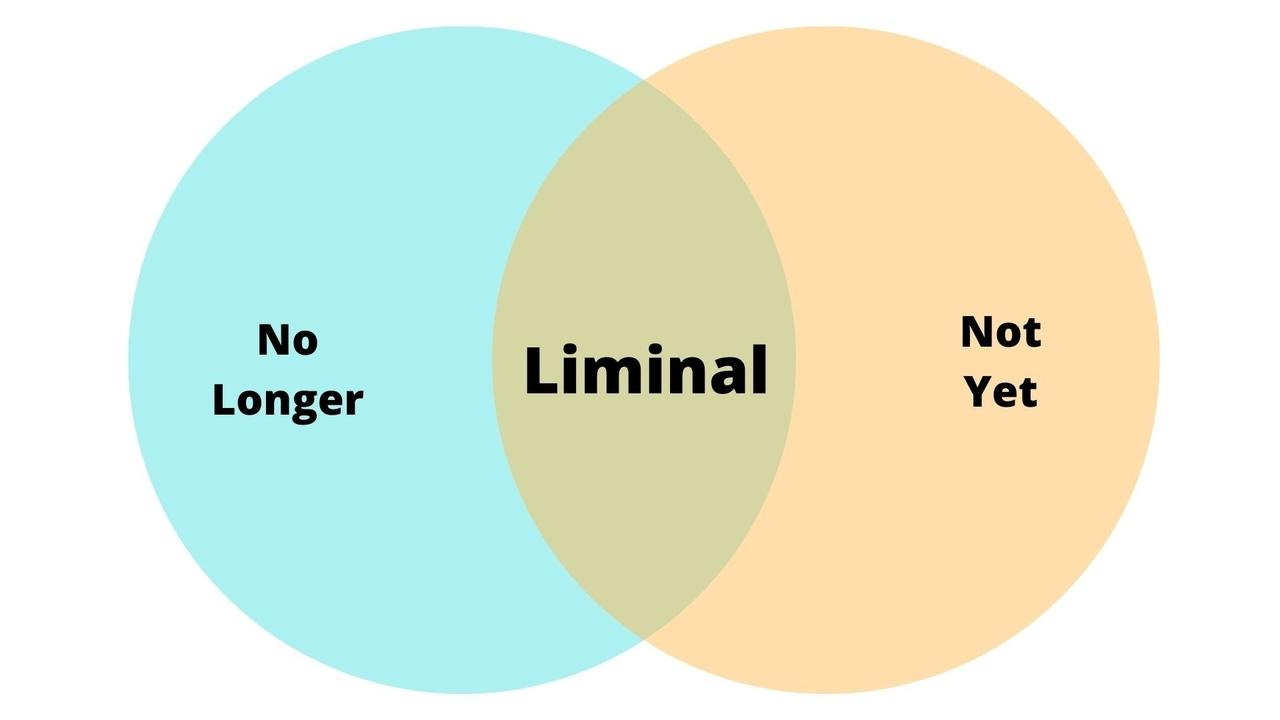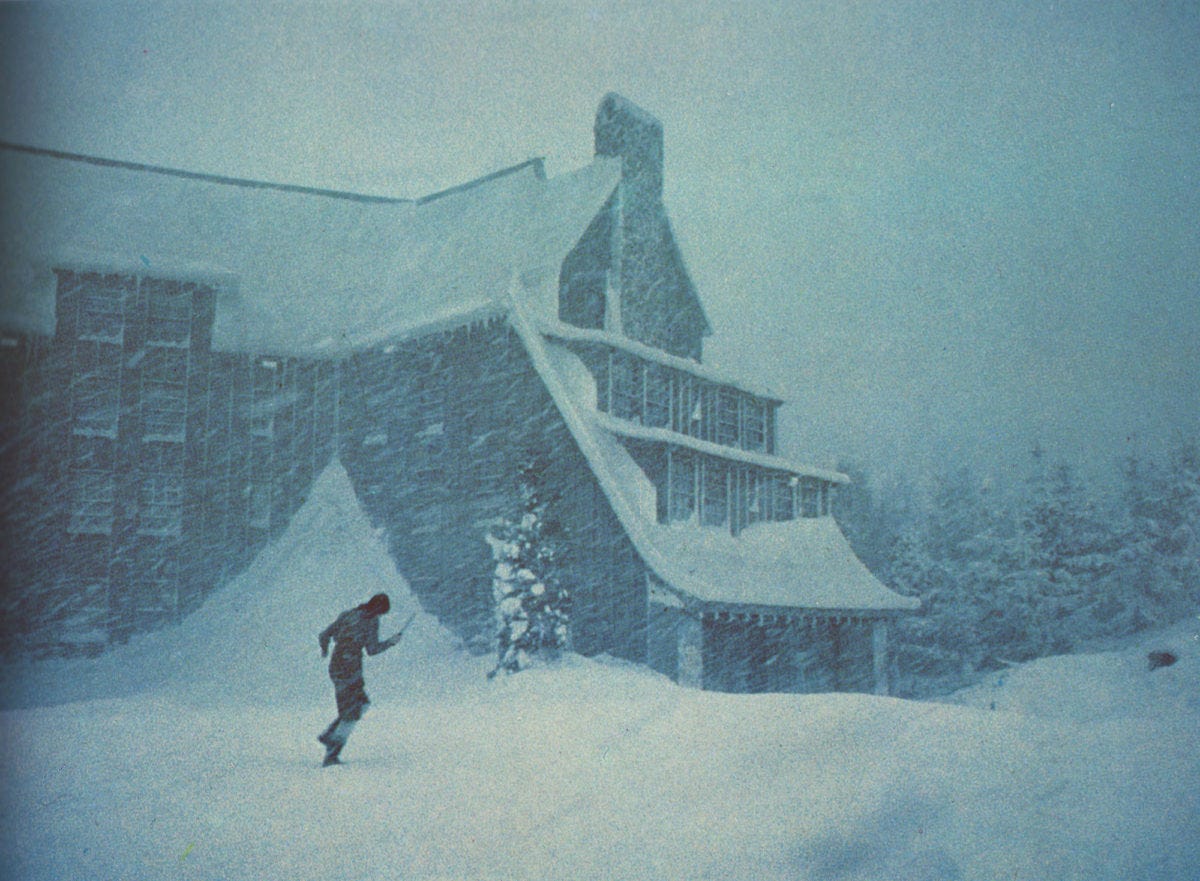When I first listened to Mk.gee, there was something strangely familiar about his music. While the guitar tones lifted me on a wave of 80s pop, they seemed also to extend beyond my definitions and boundaries of any genre. In failed attempts to describe his music, I couldn’t help but feel a tad bit frustrated at what I was hearing. Naming it was a priority - a must - in order to categorize where it sonically fit in my library.
Check out Mk.gee’s music in the captions below!
Upon first listen, Mk.gee leaves you trapped in tension and uncertainty about just what kind of music you’re listening to. His album Two Star and the Dream Police is a taste of something new while also a shadow of the past. It’s not nostalgia - just mimicry of the past for the sake of sentiment - in his own words, it’s “liminal space”.
I stumbled across an interview with Mk.gee produced by BBC Radio One. In it, he describes his album in this way:
“I wanted it to feel like something so recognizable but at the same time there is no possible way that there is anything out like this today…there’s a strangeness to that and there’s a creepiness to that as well that I’m really obsessed with…this kind of brooding apocalyptic feeling…there is something very atonal about it…like something doesn’t really sit right all the time but in the midst of this little war that’s happening outside there are these moments that are pretty amazingly pure and perfect and beautiful and that to me feels like liminal space…liminal space is something like you know…there’s these pictures you recognize that you shouldn’t recognize and that’s kind of the whole basis of it…Your brain’s like I shouldn’t recognize this, but I do recognize this…”
By the way, if Mk.gee is not playing in the background right now, get with it!
Notice the language he used to describe his music’s mood - strangeness, creepiness, brooding apocalyptic feeling, atonal, something doesn’t always sit right all the time YET pretty amazingly pure, perfect, beautiful. Liminal space is by nature paradoxical. It’s ambiguous. It rests on the threshold between past and future, yet somehow transcends the present.
For a long time, I haven’t been able to shake that phrase - liminal space. It has marinated in my mind and rested alongside daily meditations and scripture reading. It’s greeted the day's subtle moments and settled into my consciousness. It’s carved neural pathways that run parallel to perspectives I’ve held but been unable to describe.
Where these ideas are beginning to integrate is here:
The present kingdom of God occurs in liminal space - a strange, atonal kingdom yet pure and beautiful - something recognizable yet altogether unrecognizable - space that’s been caught up in the in-between - transitional.
Liminal comes from the Latin word limen meaning threshold. Threshold is defined by Oxford Dictionary as the magnitude or intensity that must be exceeded for a certain reaction, phenomenon, result, or condition to occur or be manifested.
So, in a sense, a liminal space is where the threshold has been met but the reaction has not yet resulted - the space just prior to spilling over - the space post-revolution but pre-inauguration - the space where the aroma of pizza has filled the room but the box hasn’t been opened yet.
There should be no surprise in discovering that liminal spaces have a major role in the current aesthetics of the horror and thriller genre. In a society that has developed from modern pragmatism since the dawn of modernity (1650s), there’s nothing more terrifying than the ambiguity of a liminal space. Horror and thriller flicks play on this by taking well-known, common spaces and making them alien so that the viewer has a harder time processing what is real or fake - true or false - reality or just a facade.
This can be seen in recent works like Stranger Things - utilizing the small town as an in-between to two worlds.
Severance - identifying corporate spaces as a space between reality and illusion
Or even The Shining - distorting the size and shape of The Overlook Hotel to induce a maze like feeling - always transitioning yet never arriving.
Within a society that has been based on certainty, liminal spaces can be horrific.
To imagine being caught up in a transitional space, having no certainty where you are yet strangely familiar with your surroundings - to imagine not being able to name and identify what is going on - a space of ambiguity - this is modern, anxiety-inducing horror.
And ironically, what seems horrific to the modern world is exactly where Jesus places his followers - present in a space of in-between and transition; this space is his present kingdom.
Jesus answered, “My kingdom is not of this world. If my kingdom were of this world, my servants would have been fighting, that I might not be delivered over to the Jews. But my kingdom is not from the world” (John 18:36, ESV).Do not be conformed to this world, but be transformed by the renewal of your mind, that by testing you may discern what is the will of God, what is good and acceptable and perfect (Romans 12:12, ESV)Within earthly kingdoms, Jesus positions his followers in a present kingdom that rubs shoulders with heaven and earth.
Liminal Space and the Spiritual Life
The present kingdom of God grows and expands in liminal space. Present here refers to a kingdom that is developing where we currently stand, prior to Christ’s return.
Please note, when I use the term Kingdom of God I am not only referring to the Body of Christ, but rather, the expanding, eternal kingdom inaugurated by Jesus that envelops the Body of Christ and all creation (whether animate or inanimate) that is brought into realignment with his good intention. By God’s common grace, even nonbelievers create, design, or structure things that contribute to this realigning.
His present kingdom occurs within liminal space - having come fully to its threshold, but not yet pouring over into every cell of this pulsating universe. It is in-between, having been inaugurated by Christ, existing as a counter-culture to the world, yet expectant of a full culmination upon Christ’s return. The results of this liminality are a resounding strangeness that defines the kingdom of God from creation to culmination.
A brief look throughout the biblical text shows God’s kingdom and plan expanding in liminal spaces.
Meta-narrative:
The biblical narrative begins with a garden and ends with a city. Both are results of cultivation - gardens are made up of raw materials while cities are made up of creative design, utilizing the raw materials of creation for communal thriving. Post-fall, all creation tumbles from peaceful cultivation back to pre-creation chaos - leaving humanity as contributors to chaos instead of caretakers of order. All of God’s restoration between creation’s garden and culmination’s city is by nature liminal - a taste of what is no-longer in pursuit of what is not-yet.
When God calls Abraham, He invites him and his family to be a people set-apart - made holy - for himself. He invites them into liminality. They’re a strange people amidst those ancient cultures of chaos, still bearing on their garments that garden scent. They are mediators between heaven and earth - conduits of blessing. Abram is called to submit by faith to a god whose name he does not know. He goes for it; he covenants with God who promises to uphold even more than His end. The stipulation of God making Abraham’s family his covenant people is obedience to his commandments which will result in blessing, both of their family and the surrounding nations.
Amidst a broken world, God intends that this family and the culture they create will be a foreshadowing of the restoration to come; his covenant is designed that Israel would be a blessing to the world amidst being broken themselves. The liminality exists in the fact that God’s people are called to be a picture of what-could-be amidst a world of what-is-not. They are meant (though often failing) to bear the resemblance of that garden blessing within the tension of a fallen world.
They were meant to stand in liminal spaces - to be mediators of God’s blessing to the earth.
Israel amidst other nations:
This mediation continues throughout the narrative of scripture as God’s strange people live within chaos even while knowing Order himself:
Joseph was an abandoned prisoner in Egypt yet blessed the whole nation because of his listening obedience to God
Daniel is an exile in the land of Babylon yet advised foreign kings with prophecies and interpretations from God despite his life being on the line
Countless prophets spoke God’s word into chaos having to bear the tension and uncertainty of how their obedience would affect them
There are an equal or even greater amount of examples of Israel failing at this vocation, but that’s separate from God’s intention. God intended to use this nation as a vessel that delivered his blessing by placing them in liminal space - in between fallen creation and God - in between the fall and culmination.
According to Exodus 19:5, even God considered them a peculiar treasure. And this is the result of liminal spaces - peculiarity. The tension and uncertainty between no-longer and not-yet sets God’s people apart.
Jesus’ counter-cultural invitation:
It is Jesus’ death and resurrection that inaugurates the present kingdom of God - a message unbearable for many Jews who had been expecting a conquering king to break the shackles of the Roman Empire. Beginning in liminal space, the ancient context had a difficult time categorizing what was going on - this didn’t fit their expectations based on what they had seen in the past or expected for the future.
Jesus’ invitations to his followers were peculiar and otherworldly, slightly reflecting commandments they once received, yet strangely new. He presented a way of life that would not lead to growing political parties or regimes, but rather, growth of a subversive kingdom.
Then Jesus told his disciples, “If anyone would come after me, let him deny himself and take up his cross and follow me. For whoever would save his life will lose it, but whoever loses his life for my sake will find it” (Matthew 16:24-25).Do not love the world or the things in the world. If anyone loves the world, the love of the Father is not in him (1 John 2:15, ESV)What he came to create grows in liminality - it places us at the threshold between fallen world and new earth - yet firmly planted on the same ground East of Eden. It fails to align with worldly values of success or progress, existing in yet not of the world.
Your kingdom come, Your will be done, on earth as it is in heaven (Matthew 6:10, ESV).I do not ask that you take them out of the world, but that you keep them from the evil one. They are not of the world, just as I am not of the world. Sanctify them in the truth; your word is truth. As you have sent me into the world, so I have sent them into the world (John 17:15-18, ESV). This kingdom, existing in the crossover of heaven and earth, is a liminal space, filled with a strange, peculiar people - perfumed with the garden aroma (or stench) amidst decay.
For we are the aroma of Christ to God among those who are being saved and among those who are perishing, to one a fragrance from death to death, to the other a fragrance from life to life (2 Corinthians 2:15-16, ESV). Formational implications:
On the level of spiritual formation, Richard Rohr describes it this way: “Liminal spaces, therefore, are a unique spiritual position where human beings hate to be but where the biblical God is always leading them. It is when you have left the ‘tried and true’ but have not yet been able to replace it with anything else. It is then you are finally out of the way … If you are not trained in how to hold anxiety, how to live with ambiguity, how to entrust and wait – you will run – or more likely you will ‘explain’.”
Please note, in Rohr’s description, leaving the “tried and true” does not mean abandoning the Biblical God, but rather stepping away from what may be considered the accepted (yet unorthodox) norm in your specific context of belief. Jesus seems to exemplify and invite his followers into this space.
Consider his repetition of the phrase, “You have heard it said, but I say to you” throughout the Sermon on the Mount; Jesus brings his listeners into liminal space, having to grapple with an exodus from the old system and an entrance into the new.
On a cultural scale, this liminal space is the resulting struggle of much of the Jew-Gentile tension in Acts and throughout the epistles - we could easily empathize with Peter’s fluctuation back into the realm of old ideas as he struggles with the liminal tension (Galatians 2:11-16).
In the journey of following Jesus and allowing his Spirit to form us into his image, liminal spaces are unavoidable.
Can we bear it?
As citizens of Jesus’ present kingdom, there are a few things we should expect knowing that we live in liminal space:
Expect tension: Tension between what is no-longer and no-yet holds together every gaping question that riddles the public sphere. We are not of this world, yet we are in this world. We are citizens of a heavenly kingdom, yet identified as citizens of a particular kingdom on our passports. We are invited to death to find our life while the world seeks to escape death by all means. Tension greets us around every corner. Expect and embrace it; don’t be pressured by the pendulum, but hold fast to Him who holds heaven and earth together.
Expect uncertainty: To my modern, western sentiment, uncertainty is the monster under my bed - it’s a fire that must be stomped out or else it will burn up everything I love. And yet, though faith is being certain of what we hope for, there are endless things that Jesus did not leave his disciples certain of. There are whys and hows and whats and whens that Jesus leaves completely undone. Expect and embrace it; don’t explain it all away, but patiently wait - these are the spaces where God meets us. In meeting us here, he often reminds us that his kingdom transcends my theological articulation.
Expect Jesus: Jesus meets us in liminal spaces. His kingdom grows when those soaked in tension and uncertainty throw themselves at his feet, die, and resurrect with him in new life - resting not in their ability to abolish tension or answer life’s hardest questions, but resting in Him. Abiding in Him. Expect and embrace him; he is a refuge for the weak and weary - forming us into a strange people - his peculiar treasure.
In this present kingdom - this liminal space - may we seek Jesus amidst tension and uncertainty, at peace with the strange people he is forming us to be.
Encore: more info and links for the die-hards:
Mk.gee’s full album - Two Star and the Dream Police
This Dijon video album is where I first discovered Mk.gee’s music and it played nonstop in our apartment for a whole year
Jon Guerra sheds some musical light on the kingdom in his song Citizens.
Some tasty treats on this blog - The Liminality Project
Christian Wiman addresses uncertainty very well in his memoir - My Bright Abyss: Meditation of a Modern Believer
Both Outliers and The Japanese Mind address ambiguity within culture incredibly well - some of the first places I began to assess the differences between Western and Eastern ideas of certainty and ambiguity. Our idolization of either certainty or ambiguity comes from the culture we are raised in not the God of the Bible. Neither are meant to be perfect descriptors of how we relate to God.












When I saw this on my feed I thought it couldn’t be true... I didn’t ever think I would stumble across an article that was this niche
The was good! A while ago I read a book about liminal space and Christian leadership. It was a super interesting take on the Western Church from a pastor in Australia. I can’t remember the title off the top of my head, but if you were interested, I’ll go find it. Thanks for sharing your writing!